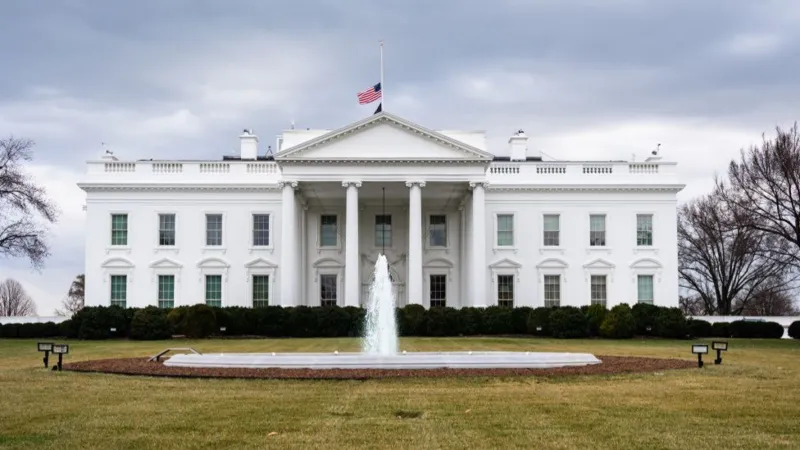UK economy shrinks for second month in a row - leaving government two choices
Today: we've just had the latest figures about the state of the UK's economy.

Surprise GDP fall 'disappointing', says chancellor
Chancellor Rachel Reeves says figures showing a surprise contraction in the economy for the second month in a row are "disappointing".
"Getting more money in people's pockets is my number one mission.
"While today's figures are disappointing, I am determined to kickstart economic growth and deliver on that promise."
She continues: "There's more to do, that's why in the spending review we boosted investment and jobs, through better city region transport and record funding for affordable homes, as well as backing major projects like Sizewell C."
Growth hangover leaves Labour two options: Cuts or taxes
On their own, a 0.3% decline in April followed by a 0.1% fall in May might not sound very significant, but they're starting to paint a picture of how the economy is fairing, explains Narwan.
The 0.7% growth celebrated by the government at the beginning of the year was driven by businesses frontrunning tax changes coming in, she says.
There was a lot of uncertainty about tariffs, so exporters were also trying to get orders out of the door.
"A lot of bringing activity forward, and now we're all in the hangover of that," adds Narwan.
"This is not where the government wants growth to be. It's not where it needs growth to be."
The government has a set of finances constrained by its own fiscal rule that day-to-day spending has to be covered by tax receipts.
"The way you grow tax receipts is to grow the economy."
Much of Labour's plans to do so are long-term, like supply-side and planning reforms, which we won't feel the benefits of for some time, Narwan says.
"In the meantime, in order to meet its fiscal rules, it has got two options: Cut spending or increase taxes."
Neither of which is palatable for the public.
"None of this is good news for anyone."
UK economy shrinks for second month in a row
The UK economy shrank in May even after the worst of US President Donald Trump's tariffs were paused, according to new official figures from the Office for National Statistics.
A standard measure of economic growth, gross domestic product (GDP), contracted 0.1% in May, according to the ONS.
Services grew by 0.1% while production and construction both fell, by -0.9% and -0.6% respectively.
"While services grew overall in May with a strong month for legal firms, which recovered from a weak April, and computer programming, these were partially offset by a very weak month for retail sales," said director of economic statistics Liz McKeown.
"Across the latest three months as a whole, the economy still grew."
In the three months to May, the economy grew by 0.5%.
"This reflected strength earlier in the year that resulted, in part, from some activity being brought forward to February and March."
In June, ONS figures for April showed the economy shrank by 0.3% that month - a contraction blamed on the financial uncertainty caused by Trump's tariffs.
April also saw a number of bill rises for businesses and households. There was a hike in national insurance contributions and the minimum wage, as well as a rise in council tax, car tax, energy, water and broadband bills.
GDP explained and why it matters for you - before latest release on state of UK's economy at 7am
Basically, GDP is a tool used to assess the size and health of an economy.
It measures the monetary value of final goods and services produced in the country over a given period.
Generally, if GDP is growing, and inflation is in check, it's a strong sign that the economy is doing well, with more jobs and better wages available, and people spending more money.
If it's falling, it signals the economy is doing badly, often bringing with it lower incomes and job cuts.
Governments, businesses and economists monitor GDP growth among other indicators to understand where the economy stands - and where it's headed.
How is it measured?
GDP can be measured in three ways:
- Output - the value of goods and services produced by all sectors of the economy - construction, retail, manufacturing etc;
- Expenditure - money invested by businesses and spending by households and the government;
- Income - the total value of income generated by the production of goods and services in terms of company profits and employee benefits.
Output is the most often cited of the three, as it is the measure with the best information available to the Office for National Statistics (ONS).
The ONS, the UK's largest statistics authority, publishes GDP figures every month - one of only a small number of countries to do so. However, the monthly data is more volatile, meaning the quarterly figures, which cover three-month periods, are seen as more important.
What does GDP not include?
GDP is an important tool, but it's not perfect.
The International Monetary Fund cautions there are some things that GDP does not reveal, such as the overall standard of living or wellbeing of the country.
GDP also excludes any unpaid work, such as childcare or looking after elderly relatives.
One of the best measures of living standards is GDP per capita - which reflects economic growth per head of the population. This also takes into account the effects of migration.
No growth can lead to recession
If GDP falls for two successive three-month periods (quarters), the UK is in a technical recession.
During a recession, there's less money circulating: less money for workers from their employers, less money being spent in shops and restaurants, and less money going to the government in taxes from wages to pay for things like benefits and public services.
-SKY NEWS






